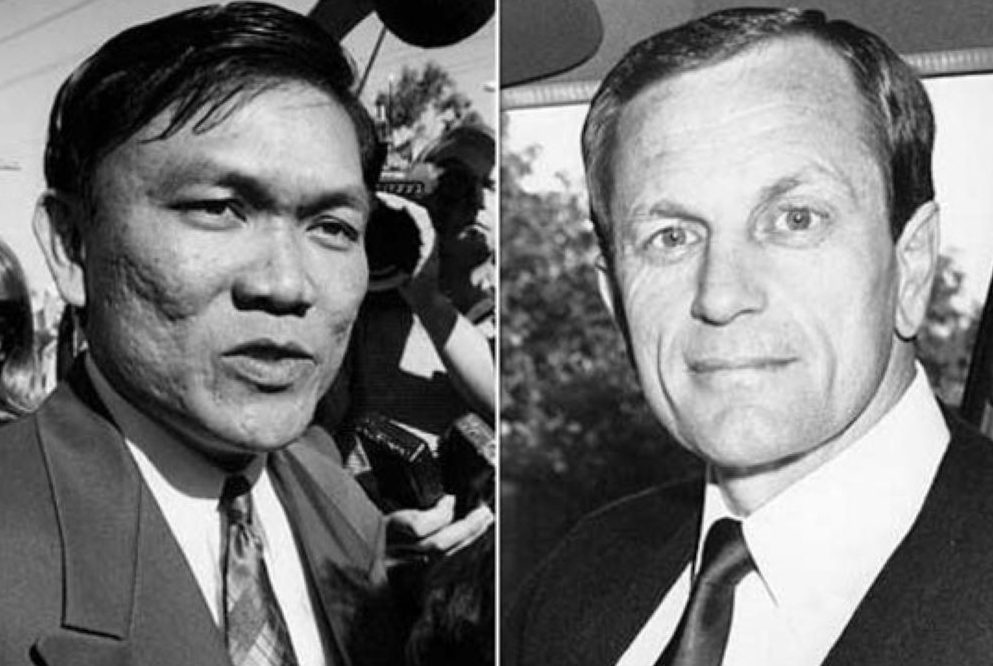
“Like historical sex crimes, victims do not forget. They raise what happened with the right people who do nothing. There comes a time and a season, and it is now,” writes legal columnist HUGH SELBY.
THE Higgins-Lehrmann saga brought five “P”s into the spotlight: prosecution conduct, police conduct, politicians, prevention of harm, and publicity.

The Sofronoff inquiry has focused on how the conduct of some agencies helped or hindered our criminal justice system.
ACT police have come through this inquiry with an enhanced reputation. Another “P” word, probity, is apt.
But for another notorious crime, and another police force, the “P” words of interest are possible or probable perjury.
Perjury describes wilfully telling an untruth or wilfully making a mis-representation under oath.
Here’s what happened.
Following the shooting murder of NSW State Labor politician, John Newman, police investigations to identify and prosecute his killer took years.
Mr Phuong Ngo, a municipal councillor and State Parliament aspirant, was convicted at a third trial. He will die in prison.
Around the time of the first trial another person (AP) confessed – over a very boozy meal – to a friend of Mr Ngo that he was the killer. He had motive, opportunity and means.
Whether his “confession” was true or not is not germane to this story. No allegations as to his being a killer are made in this article.
Hoping that AP would be stupid enough when stone-cold sober to repeat his “confession”, the media arranged for the friend’s car to be turned into a “mobile recording studio”. Then the friend induced AP to take a ride, but nothing incriminating was said.
Police interviewed AP at his home, more than once. They also interviewed his partner (APP).
Readers of our coverage of the Sofronoff Inquiry will recall that a recurring issue has been disclosure or non-disclosure of various documents by police and/or the Office of the Director of Public Prosecutions (ODPP) to the defence before the trial.
Before Mr Ngo’s second trial, the NSW ODPP received records of interview between police and AP, along with an interview between police and APP. They sent a copy to Mr Ngo’s defence. Taken together those interviews demonstrated that there was nothing to the alleged boozy confession.
At the second trial the interviewing police and AP gave evidence on oath to two interviews and to AP having nothing to do with Mr Newman’s death.
So convincing was this evidence that the defence did not require it to be repeated at the third, final trial at which Mr Ngo was convicted.
Time rolls on and some police had unfinished business. After Mr Ngo was sentenced, Mr Ngo’s friend was prosecuted for making an unlawful recording of her “in-car” conversation with AP. She was acquitted.
During that hearing the prosecutor showed her a document to ask her questions about it. This document had not been disclosed to the defence. Neither she nor her advocate had seen it, nor known of its existence.
What was it? It was another interview between the police and AP. It had occurred between the two interviews disclosed by police for the second Ngo trial. It had not been disclosed to Mr Ngo’s defence. It should have been. There is no excuse for its nondisclosure.
As the three interviews had occurred not long before the second trial, there is no possibility that when police and AP told the jury that they had two interviews that each and both had forgotten about the middle interview.
That people tell lies in trials is to be expected. That police and a witness outside of police would team up to be so forgetful is not to be expected.
Why does this matter? Here are several reasons.
First, that middle interview does not provide AP with the innocent explanation that appears in the final interview. I can describe its effect this way. Sitting at a table with the three records of interview laid out, and running through their contents led to a strong, “Oh, S moment”, followed by, “F..in’ hell”.
Second, explaining the expletives, concealing that middle interview from the defence deprived them of the chance to investigate before the second trial and then – to create a doubt about the prosecution case – raise with the jury that there was another person, AP, who may have been the killer. But you can’t investigate a non-disclosed hypothesis.
Third, the police version, then and since, is that their evidence showing Mr Ngo to be the killer is overwhelming. If so, why the need to conceal a relevant, disclosable interview from the defence (and, it seems, from the ODPP)?
You might well ask why you are reading about this sorry saga in the “Canberra CityNews”?
The answer is that, rather like historical sex crimes, victims do not forget. They raise what happened with the right people who do nothing. There comes a time and a season, and it is now.
NSW has a Law Enforcement Conduct Commission that can investigate years back, including the actions of former officers (Law Enforcement Conduct Commission Act, 2016, ss 9 and 10). Together with the NSW ODPP it will take them very little time to locate and read all the interviews.
Belated justice is so much better than two decades plus of concealed injustice. “P” is for “perseverance”.
“CityNews” legal commentator and former barrister Hugh Selby has been writing running commentary on the Sofronoff Inquiry’s public hearings, focusing upon the advocacy and witness performances. The “CityNews” coverage of the inquiry, including his daily reviews, is here.
His free podcasts on “Witness Essentials” and “Advocacy in court: preparation and performance” can be heard on the best known podcast sites.
Who can be trusted?
In a world of spin and confusion, there’s never been a more important time to support independent journalism in Canberra.
If you trust our work online and want to enforce the power of independent voices, I invite you to make a small contribution.
Every dollar of support is invested back into our journalism to help keep citynews.com.au strong and free.
Thank you,
Ian Meikle, editor





Leave a Reply